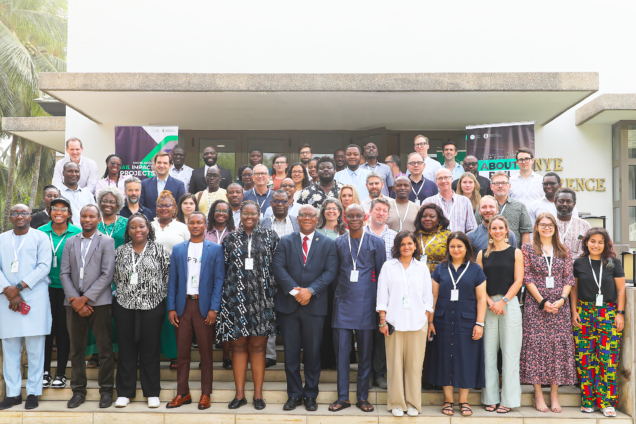Designing Artificial intelligence to help people with disabilities has become crucial for ensuring inclusivity in the AI space.
It is therefore one of the focus of The Artificial Intelligence for Development in Africa (AI4D Africa) program phase 2.
In a workshop hosted in Accra by the Responsible AI Lab(RAIL) at the Kwame Nkrumah University of Science and Technology participants including AI stakeholders, funding agencies like GIZ, FCDO, USAID, IDRC, Bill and Melinda Gates Foundation, Lacuna Fund, Mozilla Foundation, Google, documentary makers, and evaluators (Genesis Analytics) discussed plans for the future and the project’s next phase.
The discussions centered on readiness to scale and responsible AI framework for Africa. They again delved into ways to strengthen research for policy change, language models as well as means to ensure effective collaboration.
“Much effort has been put into planning the AI4D Phase 2 workshop because RAIL cherishes its relationship with its funders and stakeholders. Like a mustard seed, the AI4D project has started small but has significant potential to influence and impact Africa and the world,” said Prof. Jerry John Kponyo, Principal Investigator and Scientific Director, RAIL.
Laurent David Elder of International Development Research Centre (IDRC), emphasized the importance of policy and innovation in driving AI4D Africa vision.
“Policy is creating responsible AI governance in the continent, and innovation on responsible AI should be scaled to address developmental challenges,” he said.
About AI4D Africa
The Artificial Intelligence for Development in Africa (AI4D Africa) program is dedicated to a future where Africans across all regions create and use artificial intelligence (AI) to lead healthier, happier and greener lives.
As with any widely adopted technology — especially one as powerful and potentially pervasive as AI — the benefits come with risks that must be managed and mitigated. It can reinforce structural inequalities and bias, perpetuate gender imbalances, threaten jobs, and facilitate oppressive government surveillance. The time to write the future of AI in Africa is now, as policies and practices put in place today will shape the benefits and harms of AI in the decades to come.
To contribute to these efforts, Canada’s International Development Research Centre (IDRC) and Sweden’s government agency for development cooperation (SIDA) launched the Artificial Intelligence for Development in Africa (AI4D Africa) program in 2020.
IDRC and SIDA sponsored phase 1. The phase 2 is sponsored by IDRC and Foreign Commonwealth Development Office of the UK government(FCDO).
This four-year, close to CAD 70 million partnership seeks to address the above challenges through supporting African-led development of responsible and inclusive AI. The program promotes excellence in applied research and applying AI technologies in the service of solving development challenges and improving livelihoods for those living in poverty.
Latest Stories
-
Let’s forgive one another and push for victory – Napo appeals to NPP members
14 mins -
Fifi Kwetey takes high-octane campaign to Volta Region
40 mins -
40 women in Ashanti region empowered through MEST Africa’s digital marketing
1 hour -
Koa’s Cocoa Sustainability Imprint: Cocobod delegation, National Best Cocoa Farmers tour Koa’s facility
1 hour -
We will come out of the 2024 election stronger – Bawumia
1 hour -
GJA, EC urge credible and ethical election reportage to foster trust in Ghana’s democracy
1 hour -
NPP drops single-digit inflation target, cites economic realities
1 hour -
Nana Kwame Bediako urges youth to prioritise Ghana over political parties
1 hour -
CHRAJ’s report ‘in many parts is dumb’ – Ablakwa
1 hour -
I hope peace pact promotes genuine commitment – Rev Adu-Gyamfi
1 hour -
Electoral Commission “has walked the talk of peace”- Jean Mensa
2 hours -
Dr Bartlett-Vanderpuye honoured as Africa’s Most Innovative Business Executive
2 hours -
NDC stands prepared to play its part in ensuring peace – Mahama
2 hours -
Judiciary alert to high stakes of competitive elections – Chief Justice assures
2 hours -
Nana Kwame Bediako sets up Guinea Fowl farm in Bole to support residents
2 hours

